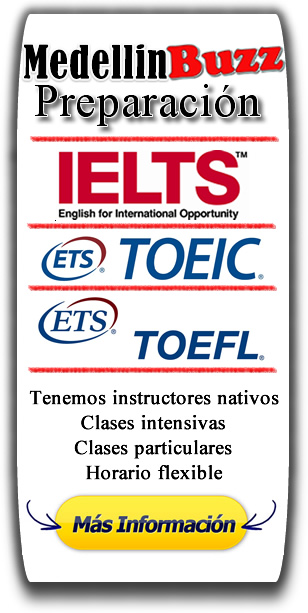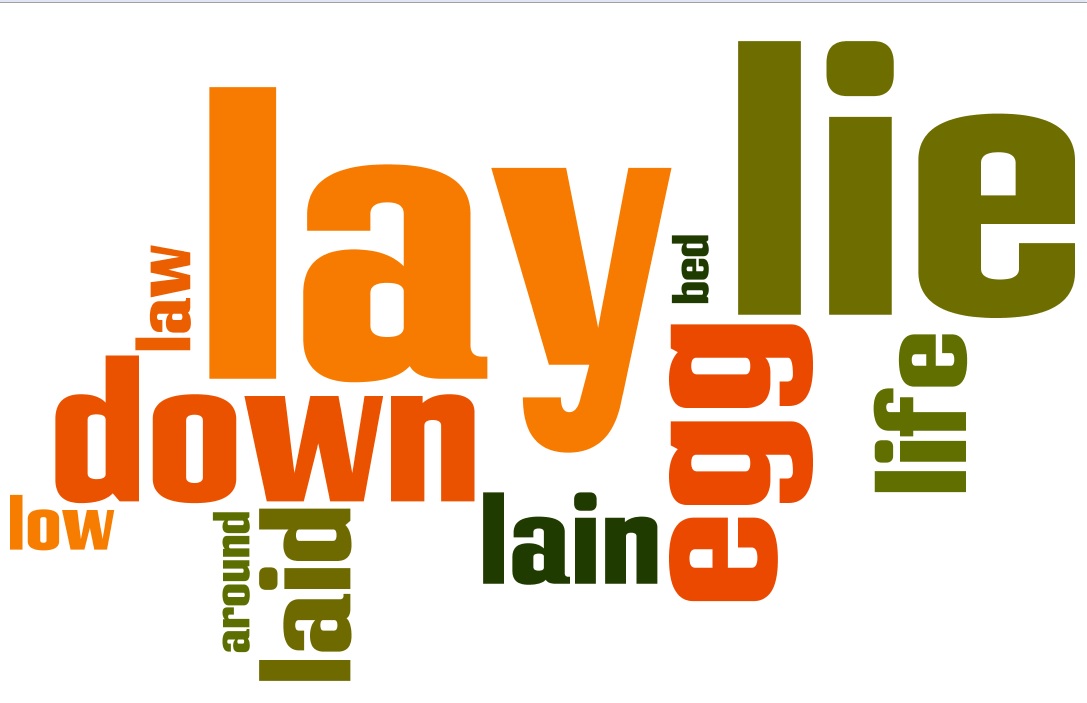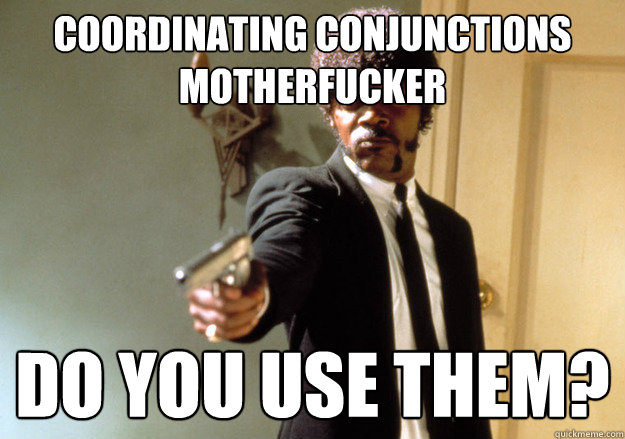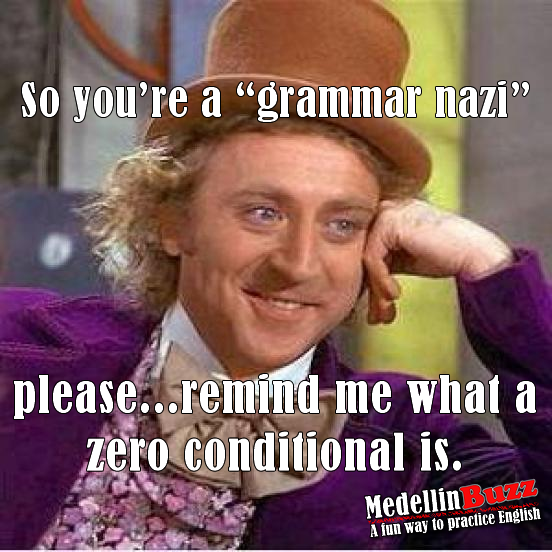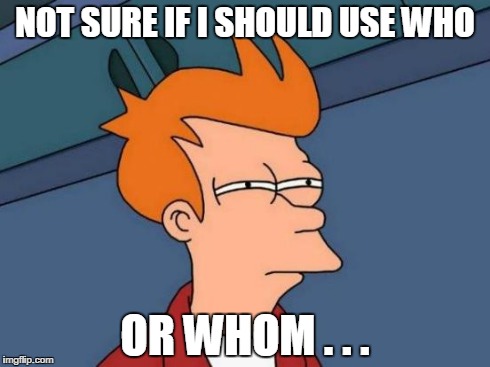
Should I use who or whom?
Who and whom is difficult even for some native speakers. In most movies, sitcoms, and songs you will always hear the use of “who” even when it’s incorrect. It’s become such a widely accepted error that most native speakers do not even know when to use them.
Pronouns
First of all you need to understand what a pronoun is.
A pronoun is a word that replaces a noun. For example: he, she, it, we, they, them, us, you, me, him, her, and I. These are all pronouns.
You can categorize pronouns into two sections. Subject pronouns and object pronouns.
- Subject pronouns: He, she, I, we, they, you, it.
- Object pronouns: Him, her, me, us, them, you, it.
Which is the subject and which is the object? He loves her.
The subject pronoun performs the action, the object pronoun receives the action.
Easy, right?
Who and Whom
Okay, so now we remember pronouns.
Which do I use? Who/Whom did you take to the party?
It’s actually pretty easy. All you have to remember is that who replaces the subject and whom the object.
So, whom did you take to the party? I took her.
Who/Whom is your best friend? He is my best friend. Correct answer: Who.
More examples of who and whom
Which is correct? The guy over there, with who/whom I came here, is my father.
The correct answer is whom.
In our example: The guy over there, with whom I cam here, is my father. I am the subject, and my father is the object. So we use whom.
I don’t care who/whom is responsible, someone has to pay!
The correct answer is who.
In our example it is correct to say, “He is responsible.” Not, “Him is responsible.” So the pronoun is a subject pronoun, so we use who.
Now you try, who and whom exercises
- Who/whom did you see?
- A man who/whom I recognized left the theater.
- He is the one who/whom we think will give up first.
- We don’t know who/whom you are talking about.
- I never met anyone who/whom looked so tired as she/her.
- Who/Whom do you trust?
- Who/Whom do you think should stay behind?
- Choose whoever/whomever you want.
- Show the door to whoever/whomever disagrees.
- The gameball will be given to whoever/whomever displays superior sportsmanship.
- George said he would oppose whoever/whomever you would appoint as chairperson.
- Who/Whom would you say is liable for the damage?
- Who/Whom did the supervisor recommend for the position?
- I am going to the party with (whoever whomever ) asks me.
- Who/Whom do you think will win first prize?
- It was George who/whom they saw at the bank earlier that morning.
- Sheila asked who/whom would be the new principal at the school.
- He was especially kind to the guests who/whom I had brought.
- Who/Whom was the one who received the highest score?
- Molly worried about who/whom would eventually take over the store.
- My uncle, who/whom we hired as our contractor, will finish the deck in early June.
No it’s your turn
Write 6 questions, 3 using who, and 3 using whom.
- ____________________________________________________________
- ____________________________________________________________
- ____________________________________________________________
- ____________________________________________________________
- ____________________________________________________________
- ____________________________________________________________
Conclusion
The use of who and whom is becoming less and less important in spoken English, but in written English it is important. If you are preparing for a proficiency exam like the IELTS, TOEFL, or MELICET you definitely need to know how to use who and whom.
Si vives en/alrededor de Medellin y necesitas preparar para un examen contácteme.
Medellin Buzz TEST Preparation (click here for more information)
About the writer – Andrew Macia
 Hello, my name is Andrew Macia and I am the founder of the Medellin Buzz. I am an advanced level English teacher here in Medellin, and I also have a website development, and marketing company which I run from home.
Hello, my name is Andrew Macia and I am the founder of the Medellin Buzz. I am an advanced level English teacher here in Medellin, and I also have a website development, and marketing company which I run from home.
My idea with the Medellin Buzz is to push those who are learning English and to integrate native speakers with non-native speakers.
I love living in Medellin and I love Colombia. I want to give back to the community and this is the best way I know how. Let’s practice English and Spanish and have a great time!
About the Medellin Buzz
The Medellin Buzz is lighthearted news source for English as a Second Language learners in Medellin, Colombia. The Medellin Buzz is written in a way that is easy to understand.

